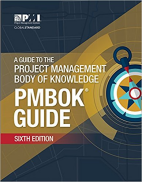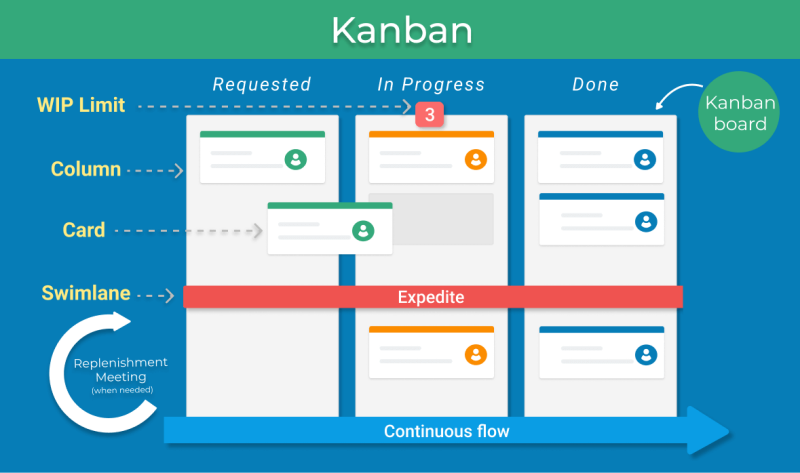
A Guide to the Project Management Body of Knowledge (PMBOK Guide), Sixth Edition has been completed and is available in the market.
It’s the latest update since the release of the Fifth Edition in January 2013. The guide holds the latest best practices in project management, in particular, complementary agile approaches, as well as new and renamed sections on knowledge areas. It also contains new content, more emphasis on strategic and business knowledge, and corresponding skills necessary to succeed in today’s market.
Book Details
The PMBOK Guide 6th Edition is about 8.2 in. wide, 1.1 in. thick, and 11.8 in. long. It ships about 3.4 pounds. It has 756 pages divided in 19 chapters and 6 appendices. It will be available in paperback and Kindle formats. The PMI lists the publication date as September 22, 2017. It is available in English now, and will be available in Brazilian, Spanish, Russian, Korean, Japanese, Chinese (Simplified), German, Arabic, Italian, Hindi, and French in early 2018. ISBN-10: 1628251840; ISBN-13: 978-1628251845.
Price
$68.45 for the paperback version and $65.03 for the Kindle version

Target Audience
The PMBOK Guide Sixth Edition is for project management professionals of all levels. It is a reference for all involved with project management practice, for students in their academic pursuit, for educators and trainers in teaching, for aspirants in obtaining certification, and for professionals in getting updated in how to best implement projects in a variety of applications, businesses, industries and scale.
What’s New in the Sixth Edition
- For the first time, the Guide to the Project Management of Knowledge includes information and guidance on how to implement its approaches in agile environments. A new section called Approaches for Agile, Iterative and Adaptive environments for each knowledge area will describe how the practices integrate into project settings.
- A new Agile Practice Guide has been created to complement the PMBOK Guide. It provides tools, guidelines, and various agile approaches to help project managers more accustomed to traditional environments adapt to an agile approach. PMI states that a complimentary copy will be provided to those who will order the latest PMBOK Guide.
- A new section has been added about the role of the project manager. More emphasis is placed also in aligning projects to strategic objectives of the organization. Additional content also on knowledge areas, tailoring considerations, and more accurate terminology, such as renaming project time management into project schedule management. These are but some of the changes.
Content, Approach, Style
Content: The 756 pages of the PMBOK Guide 6th Edition are divided into 3 parts. The first part contains 3 front chapters and corresponding chapters for the 10 knowledge areas. The second part contains 6 chapters which are an introduction to the standards, and chapters for each of the 5 process groups. The third part contains 6 appendices.
Approach/Tone: The Guide was developed by active practitioners and subject matter experts and reviewed by the PM community. It reflects the current state of the project management profession.
Style: The book provides professional/textbook definitions, descriptions and explanations about the topics covered. It includes also more than a dozen diagrams, flowcharts, and other illustrative images as visual aids.
Why Buy the Book
The PMP, Agile Certified Practitioner (PMI-ACP), and CAPM exams will be updated in the first/second quarter of 2018. The exam questions will reflect the changes included in the PMBOK Guide Sixth Edition. The PMBOK Guide, by ANSI standards, must be updated every 4 to 5 years. One reason is that it continually learns from research and actual experience, and then shares this knowledge with the rest of the PM community.
About the Author
The Project Management Institute (PMI) is the leading non-profit professional membership association for the project management profession. It was founded in 1969, and incorporated in Pennsylvania, USA. Over the years, it made efforts to standardize project management procedures and approaches. The PMI produced the first PMBOK in 1996. Its advocacy to improve and further mature the project management profession is reinforced by its globally recognized standards, certifications, research programs, and professional development opportunities, among others.



